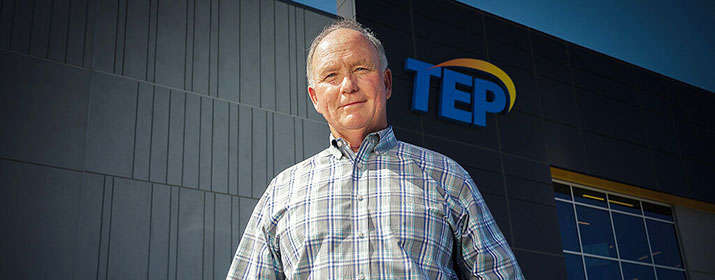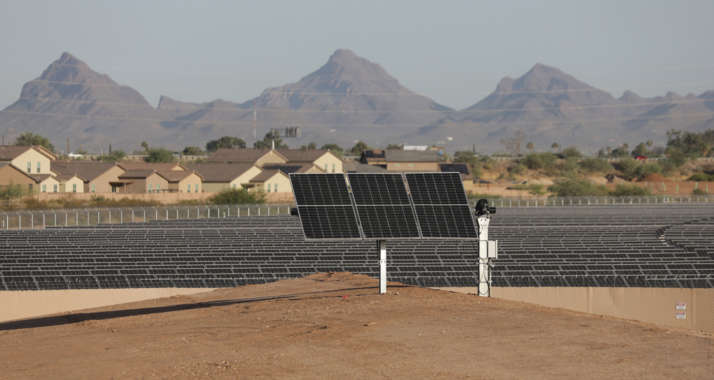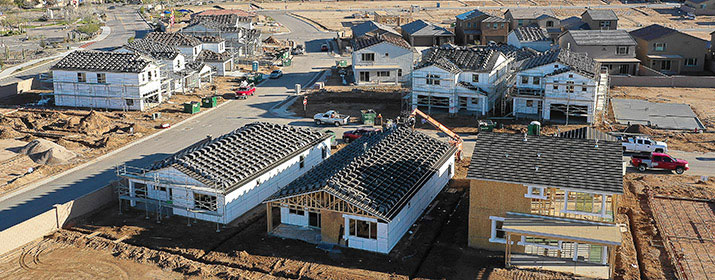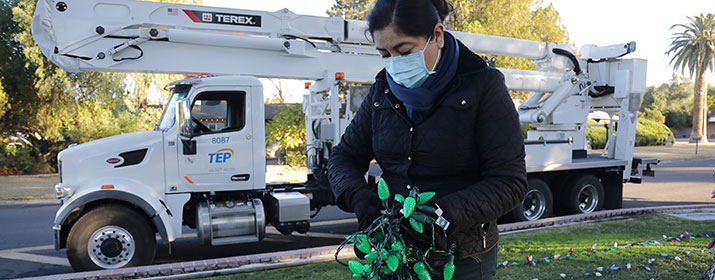
When John Feckner began his career at Tucson Electric Power five decades ago, Pong was a popular video game, “American Pie” topped the pop music charts and a gallon of gas cost just 36 cents. The year was 1972, and a lot has changed since then.
Feckner, TEP Director of Construction Services, retired in November after a lengthy career spanning from skilled trade positions to management. The many changes he has seen in the company and utility industry are “like night and day.”
Feckner began as mail clerk before becoming a “helper” for employees who designed system upgrades. He worked there for about 18 months before joining a team that tests and repairs equipment, where he completed a three-year apprenticeship to earn his journeyman’s certificate. He would spend the first 32 years of his career learning and applying his technical skills before advancing to various management positions over the next 18 years.
“I got a total education here,” said Feckner, a native Tucsonan. “When I started at TEP, I never realized just how many different areas and jobs there were at the company.”
In the early days of his career, there were few computers and software programs for design drawings, financial and information management or even communicating with other areas of the company. “Everything was done manually with paper and index cards. Today, we use technology – such as computer-aided design and other specialized software programs – to complete most of these tasks and it is constantly changing and improving,” he said.
Over five decades, he saw the company expand and adopt emerging technologies to support a growing community. TEP’s fleet expanded, automated meters have largely replaced in-person readings, and smart devices now provide remote monitoring of our grid. Other major changes have included the use of steel poles and battery storage and continuous upgrades to safety practices and personal protection equipment to keep crews and the community safer.
Among the biggest changes? TEP’s transition from its historic reliance on coal to expanded use of natural gas, wind and solar, as well as the beginning of the electric vehicle (EV) revolution.
TEP plans to supply 70 percent of our energy from renewable resources and reduce carbon emissions 80 percent by 2030. We also plan to transition our fleet of 200 light duty trucks and passenger cars to electric over the next eight years while helping to build an EV charging infrastructure throughout our community.
Reflecting on his lengthy career at TEP, Feckner said he wouldn’t change a thing. “I had the chance to go to another utility and a railroad, but I chose TEP. I was so fortunate to learn many different areas of the business and go from a mail boy to a director.”
Feckner expects the next generation of employees will need even stronger technical and information technology skills to support emerging technologies in the evolving energy industry.
“We will always need skilled trade workers, but they’ll need to be able to use smart devices and other technology to do their work,” said Feckner. “Technology now plays such a big role in our operations. My advice to utility workers is to get up to speed on technology to prepare for yourself for the job of tomorrow.”
Feckner hung up his hard hat for good on November 1 and is planning to use his spare time to play more golf and work with his horses. “I’ll definitely miss the relationships with the people here and those I’ve tried to help and develop. I’ve been driving to the Irvington campus for 48 years, so I just hope I don’t get in my truck one morning and pull into the employee parking lot by mistake.”






